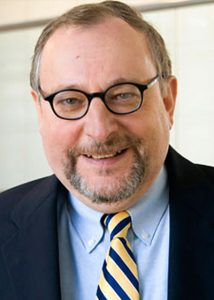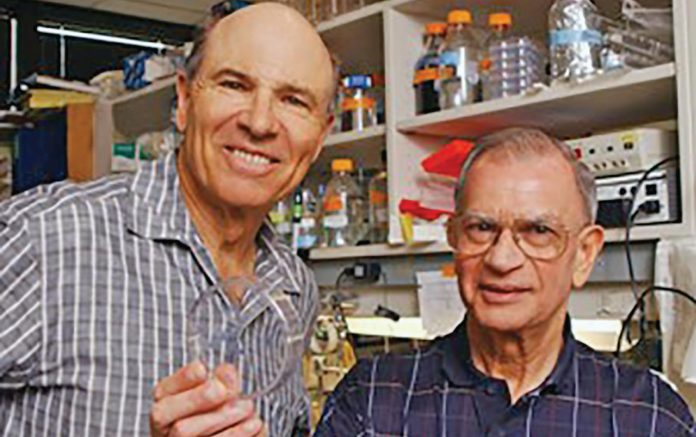By Ignacio Wistuba, MD, and John Minna, MD
Posted: August 14, 2019
Dr. Adi Gazdar was a scientific pioneer, a groundbreaking pathologist, a loyal friend, and an inspiring mentor.
Dr. Gazdar was born in India; he earned his medical degree from Guy’s Hospital Medical School at the University of London and completed residencies in pathology at Peter Bent Brigham Hospital and New England Deaconess Hospital in Boston before joining the National Cancer Institute (NCI) in 1968. During his remarkable 5-decade career, Dr. Gazdar served 23 years with the NCI as a senior scientist and section head. His NCI experience included initially leading its Viral Pathology Section; the Human Tumor Cell Biology Laboratory for the NCI’s VA Medical Oncology Branch from 1975 to 1981; and then the Human Tumor Cell Biology Section for the NCI-Navy Oncology Branch from 1981 to 1991. His team collected, cataloged, and analyzed thousands of human cancer specimens with an emphasis on lung cancer and lymphomas. In 1991, he joined his long-time colleague Dr. John D. Minna at the University of Texas Southwestern Medical Center, Dallas, Texas, where he had a distinguished 27-year career as professor of pathology as the W. Ray Wallace Distinguished Chair in Molecular Oncology Research, and deputy director of the Nancy B. and Jake L. Hamon Center for Therapeutic Oncology Research.
Dr. Gazdar’s efforts in the laboratory yielded the first large panel lung and breast cancer cell lines, used by investigators around the world, and he developed molecular methods for detecting early lung tumors. Dr. Gazdar also identified several genes involved in the pathogenesis of different cancers. In lung cancer, he uncovered mutated genes dysregulated by mutation and DNA methylation, provided some of the first work characterizing neuroendocrine cancers, such as SCLC, and played a major role in the discovery of the mutated epidermal growth factor receptor (EGFR) gene as a therapeutic target in lung cancer. During his long career, Dr. Gazdar published approximately 800 articles, book chapters, and commentaries, and has been cited more than 110,000 times, ranking him among the top 1% of scientists in the biomedical field. His numerous honors and recognitions include a 2004 award from the prestigious Jacqueline Seroussi Memorial Foundation for Cancer Research in Israel and the 2003 Mary J. Matthews Pathology/Translational Research from the IASLC.

“Dr. Adi Gazdar was a remarkable mentor and friend. His insight into tumor biology was unique, and his contribution to the study of lung cancer biology was remarkable. Dr. Gazdar was, by nature, very modest, and I think that he would have been very proud of this session honoring his scientific achievements.” –Dr. Fred Hirsch
Dr. Gazdar was an inspirational role model for many young scientists, mentoring over 100 post-doctoral fellows from around the world. IASLC established the Adi Gazdar Translational Research Fellowship Award in 2017 to honor his legacy in lung cancer training.
A special symposium to honor Dr. Gazdar’s legacy will be held at the IASLC 2019 World Conference on Lung Cancer on Saturday, September 7, 17:30-19:00. The symposium is cochaired by Drs. Fred Hirsch, Tetsuya Mitsudomi, and Ignacio I. Wistuba. The speakers will address Dr. Gazdar’s outstanding qualities as mentor (Tetsuya Mitsudomi, MD) and friend (Fred Hirsch, MD, PhD), as well as his legacy in cancer research (Peter Ujhazy, PhD), including his impact of cell line development (Paul Bunn, MD), his research on lung premalignancy (Kwun Fong, MD, PhD), and his role in understanding the evolution of SCLC and neuroendocrine tumors (Lauren Byers, MD). ✦











